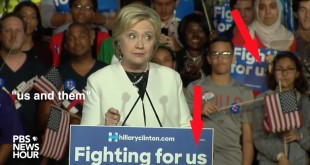Yes, it’s still 18 months until the 2016 presidential election, but the circus atmosphere surrounding the various campaigns is already inescapable for anyone paying attention to current events.
In quiet times, some in the news media look for ways to generate controversy and ratings, and one their favorite traps for candidates is the hypothetical. Some of the questions are simply stated and designed to corner or embarrass a candidate, e.g. “Would you attend a gay wedding?”, or “Would you want your son to be sent to <a potential war zone>?”
Other questions attempt to construct a future circumstance and elicit from the candidate insight into his/her possible future actions. The problem with this type of question is that they are usually very simply stated and presidential decisions are rarely simple. In the upcoming months we may hear “Do you support amnesty for illegal immigrants?” or “If Russia invades Ukraine again, would you send US troops to assist Ukraine?” The true answer to most questions such as these is, “it depends”. Many factors, political and otherwise, play into decisions on complex issues, and they usually can’t be explained in a sound bite length of time. Reporters know this, and know that a candidate can easily say the wrong thing when trying to boil down a long answer into one or two sentences. The best politicians learn the art of saying nothing of substance when answering these “gotcha” questions.
A third variant, not as common, look back to events in the past and include “would you have” somewhere in the question. The media favorite in the past week has been something similar to “Knowing what we know now, would you have invaded Iraq in 2003?” This question was originally posed to Jeb Bush and was designed to get him to comment on his brother’s actions and policies as president. Bush appeared to misinterpret the question and stumbled a bit in answering, and voila, a controversy was born.
Other candidates were asked the same question in quick succession. Marco Rubio tried to challenge the question and didn’t smoothly give a simple answer – another point for the media! Among the candidates asked the question, Hillary Clinton probably handled it the mostly skillfully, possibly because she was able to wait and pick the time to answer it. As a senator, she had voted in favor of the Congressional resolution to invade Iraq in 2002, so the question to her was a bit more legitimate. In the 2008 campaign and as recently as 2014, Clinton has stated that if she had known how president George W. Bush was going to use the resolution, she would not have voted for it. Her much better answer of yesterday started with “I’ve made it very clear. I made a mistake, plain and simple.” No controversy, and it probably closed that subject for her with the media.
A better question to ask (but far less likely to produce a juicy sound bite) would be, “What have you learned from America’s experience in Iraq since 2003 and how would you apply that to the current situation there?” This question, assuming an answer of substance would provide insight to the candidates’ thinking and possible approaches to a real, current issue.
Continue to expect questions about gay marriage, immigration, Russia, Iran, fundraising, Libya, etc., designed to trap candidates into an embarrassing answer. Yes, a president must have the ability to handle such questions skillfully – it would be nice if the questions testing that ability had more substance.
 Thought Widget get learnt
Thought Widget get learnt



